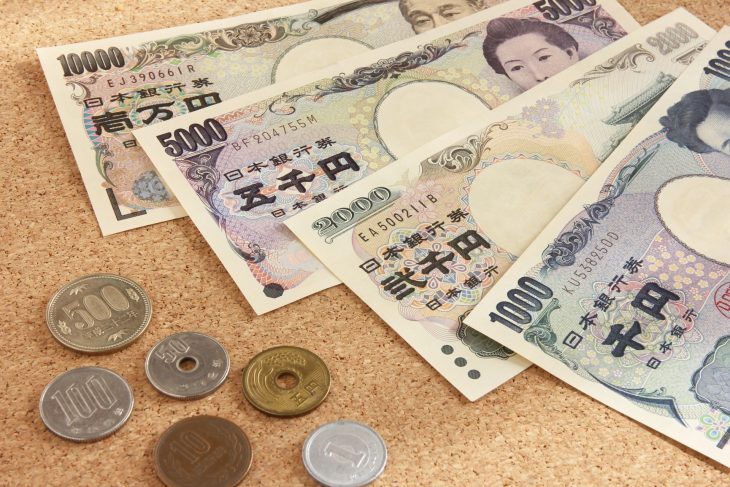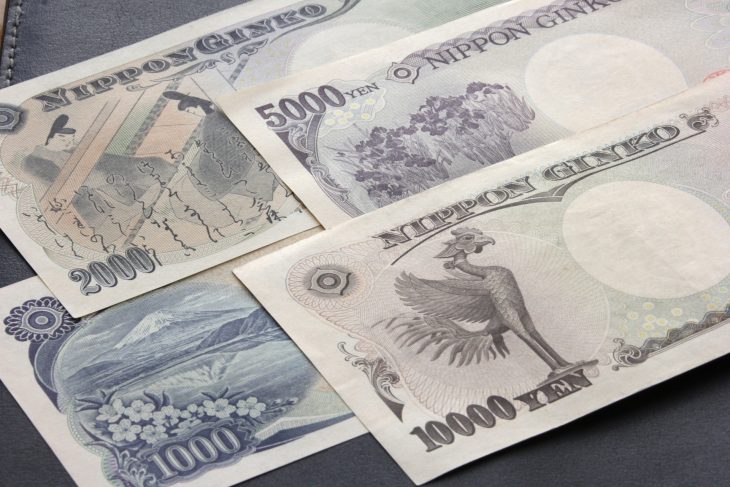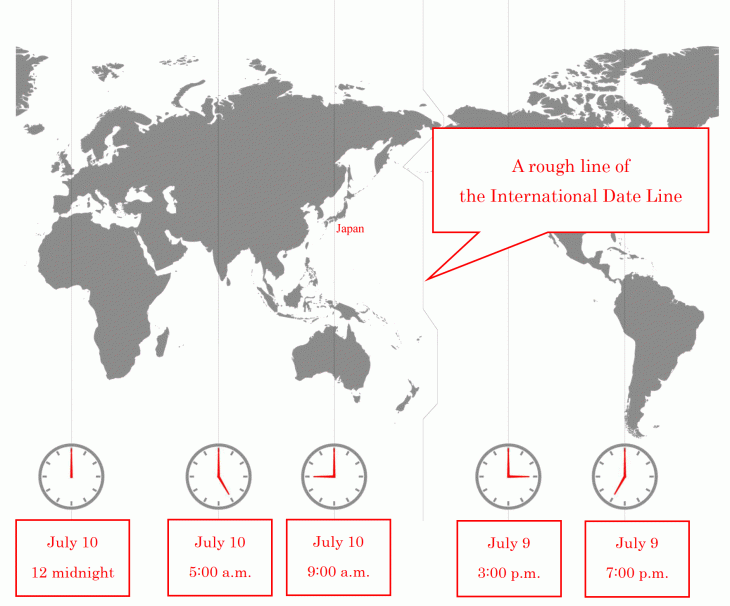Share this link via
Or copy link
One of the best Japanese Kanji dictionary.

No Japanese people call their home country “Japan” in their language. Instead, they call it にほん(Nihon  ) or にっぽん(Nippon
) or にっぽん(Nippon  ), and Kanji characters for both pronunciations are the same – 日本. Besides, there is another Kanji that stands for the adjective “Japanese” or “Japanese language” – 和.
), and Kanji characters for both pronunciations are the same – 日本. Besides, there is another Kanji that stands for the adjective “Japanese” or “Japanese language” – 和.
Contents
Let’s take a look at these three characters.
In this context,「日」means “the sun,” and 「本」means “beginning,” or “origin.”
As a total, the word「日本」 represents the meaning “a place where the sun rises.”
「和」is pronounced as “Wa” based on the ancient name for Japan called by China, 「倭」(Wa).
「日」 is a pictogram for the sun.

The character「本」 comes from putting a mark on a base of a tree and shows the meaning of “root,” “fundamental part,” “beginning,” “foundation,” or “basis.”

「和」 is the combination of two blocks. 口 is for the “mouth,” and 禾 represents the sound. 禾 means “to meet.” As a whole, the shape of 和 represents the harmony of the voices of people.
In the modern Japanese text, it is used for the meaning “to be calm,” “to get along,” “to soften,” “peaceful,” “sum (in Mathematics),” “to respond,” “to mix,” “to adjust,” and“Japanese.”

The Japanese government accepts both Nihon and Nippon as the country’s official name. It considers that there is no need to unify them. However, Japanese people tend to call the name “Nihon” in daily conversation. Also, when combined with other words to describe that something is Japanese, it tends to be pronounced “Nihon.” For example, the Japanese language is「日本語」(Nihongo  ), and Japanese people are called 「日本人」(Nihonjin
), and Japanese people are called 「日本人」(Nihonjin  ).
).
Generally speaking, “Nippon” is used in specific situations or nouns.
Here are some of the examples for the usage of “Nippon”:
 ). The national team could be simply called 日本(Nippon
). The national team could be simply called 日本(Nippon  ).
). )
) )
)
On the front side of the bills, you could see the characters “日本銀行券 [kanji_voice txt='日本銀行券'].”

On the backside of the bills, you can see the letters “NIPPON GINKO.”
In conclusion, when you want to call the country’s name in Japanese, “Nihon” sounds more natural in most of the cases.
In this kind of situation, the abbreviation of 日本 is「日」. Foreign countries’ names are abbreviated in one Kanji character as well. In general, 「日」 comes first, and other names will follow.
For example:
 )
) 」 or「2002日韓W杯」. 「年」 means “year” and 「韓」stands for South Korea. “W” is the abbreviation for “World” and「杯」means “cup.”
」 or「2002日韓W杯」. 「年」 means “year” and 「韓」stands for South Korea. “W” is the abbreviation for “World” and「杯」means “cup.”Japan was not called “日本” before the sixth century. Since Japanese people did not have any characters until around the fourth century, we could only know how Japan was called before that from the documents written in ancient China.
Japan used to be called 「倭」(Wa) from China. The very first Chinese document in which Japan appears is from the first to the second century BCE, and Japanese people were called 「倭人」(Wajin  ).
).
It is said that Japanese people started to call their country’s name 「日本」 from the late seventh century, and the name became official around the year 701 CE.
The first Chinese official document that the name「日本」appears is 『旧唐書』(the Old book of Tang, pronounced “Kutōjo  ” in Japanese and “Jiù Tángshū” in Chinese). It was completed in the mid-tenth century, and nowadays, Japan is still called「日本」from China, pronounced “Rìběn” in Chinese.
” in Japanese and “Jiù Tángshū” in Chinese). It was completed in the mid-tenth century, and nowadays, Japan is still called「日本」from China, pronounced “Rìběn” in Chinese.
「和」 works like the adjective “Japanese” or the noun “the Japanese language” in Kanji compounds.
For example:
 ) : The word used when describing that something is in Japanese style. If you say 和風建築(wafū kenchiku), that means that the architecture is in Japanese style.
) : The word used when describing that something is in Japanese style. If you say 和風建築(wafū kenchiku), that means that the architecture is in Japanese style. ) : This means the style that Japanese and Western-style are combined. In this context, the Kanji character「洋」stands for something western. It could be used for architecture or meals, etc.
) : This means the style that Japanese and Western-style are combined. In this context, the Kanji character「洋」stands for something western. It could be used for architecture or meals, etc. ), 和装(wasō): Basically, 和服 means Kimono, and 和装 means to wear Kimono.
), 和装(wasō): Basically, 和服 means Kimono, and 和装 means to wear Kimono. ) : Japanese dishes
) : Japanese dishes ): Translation into the Japanese language
): Translation into the Japanese language )・英和辞典(ēwa jiten
)・英和辞典(ēwa jiten  ): 和英辞典 means the Japanese-English dictionary and 英和辞典 means English-Japanese dictionary.
): 和英辞典 means the Japanese-English dictionary and 英和辞典 means English-Japanese dictionary.As a matter of course, the sun rises in every country. However, when talking about the time zone, you could say that it rises earlier in Japan than most other places on earth, since the country is relatively close to the International Date Line. Japan welcomes a new day earlier than most of the world.
“The country where the sun rises”? Hmm, it might not be far off in these modern days.

What is Onyomi?
Onyomi, also known as the "Sino-Japanese reading," is one of the two main reading systems for kanji characters in Japanese. It refers to the reading of a kanji character that is derived from the original Chinese pronunciation.
What is Kunyomi?
Kunyomi, also known as the "native Japanese reading," is one of the two main reading systems for kanji characters in Japanese. It refers to the reading of a kanji character that is based on the native Japanese pronunciation. Kunyomi readings are often used when a kanji character stands alone or is followed by hiragana, as in verbs and adjectives. Mastering both kunyomi and onyomi is crucial for understanding and using kanji effectively in the Japanese language.
What is Radical?
A radical, also known as "bushu" in Japanese, is a fundamental component of kanji characters. Radicals are the building blocks of kanji and are used to categorize and organize them in dictionaries. There are 214 traditional radicals, each with its own meaning, which often provides a clue to the meaning of the kanji character it forms.
What is strokes?
Stroke count, or "kakusuu" in Japanese, refers to the number of individual brushstrokes required to write a kanji character. Each kanji has a specific stroke order and stroke count, which are essential for writing the character correctly and legibly. Understanding and following the correct stroke order not only ensures proper balance and aesthetics but also makes writing more efficient and fluid.